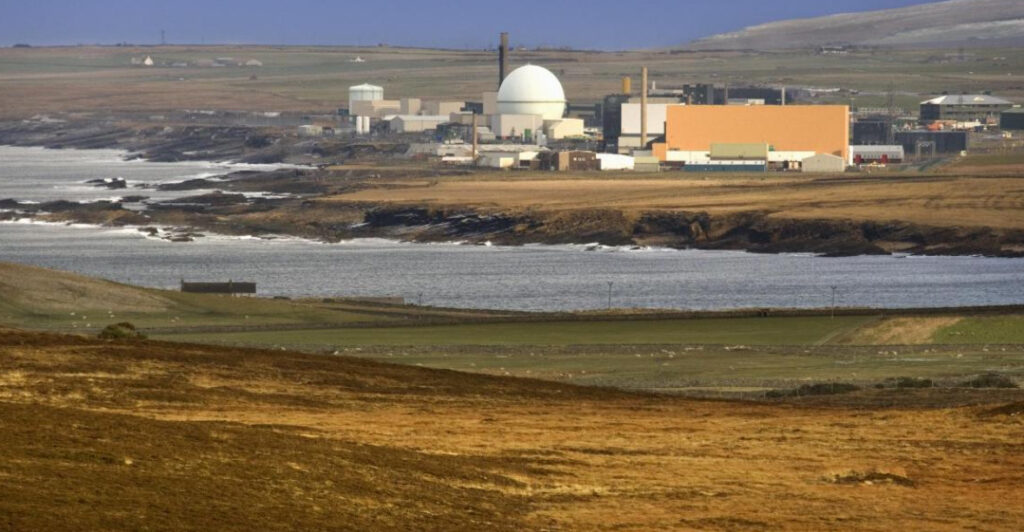The Ministry of Defence is facing backlash over its handling of nuclear site decommissioning in Scotland, with critics accusing it of attempting to shift responsibility rather than taking accountability.
Plans to transfer ownership of the Vulcan submarine reactor testing site, located near Dounreay in Caithness, to the UK and Scottish governments’ Nuclear Decommissioning Authority (NDA) are reportedly in advanced stages. The deal is expected to be finalised between 2027 and 2028.
However, concerns are mounting over who will fund the costly clean-up, which involves dismantling and disposing of two radioactive reactors. Unlike civil nuclear sites, military facilities do not have dedicated funding set aside for decommissioning, raising fears that the MoD may evade financial responsibility.
Campaigners are urging transparency in the process, warning against any secret agreements that could leave Scottish taxpayers to cover the costs.
The UK’s Nuclear Free Local Authorities group, which consists of 26 members, is set to raise the issue with nuclear minister Lord Hunt at an upcoming meeting on 31 March.
They are pressing for a clear commitment from the MoD to fully finance the decommissioning of Vulcan.
The MoD has stated it aims to ensure “value for taxpayers’ money” in the clean-up process, while the NDA has said that funding will be determined through standard government procedures.
Vulcan has been operational since 1957, with reactors running from 1965 to 1984 and 1987 to 2015 to test designs for the UK’s nuclear submarine fleet. The site became the centre of controversy in 2012 when a reactor leak caused a spike in radioactive emissions. Initially downplayed by the UK Government, the issue led to political clashes, with the Scottish Government accusing Westminster of deception.
Discussions on transferring responsibility for the site’s clean-up began in 2022, and recent reports indicate that the process is moving forward quickly. However, Scottish Government documents provide little clarity on how the decommissioning will be funded.
The uncertainty surrounding Vulcan’s clean-up has sparked broader concerns about the decommissioning of other military nuclear sites.
Scotland is home to several, including the Faslane nuclear submarine base and the Coulport nuclear weapons depot. Additionally, seven retired nuclear submarines are awaiting disposal at Rosyth in Fife, with another 15 at Devonport in Plymouth.
Unlike civil nuclear sites such as Hunterston B and Torness, which have decommissioning costs covered by the UK’s Nuclear Liabilities Fund, there is no equivalent fund for military sites. This has raised fears that the MoD could shift financial responsibility to the NDA, which is already facing budget constraints.
Alba Party figures, including retired Royal Navy commodore Rob Thompson, have condemned any potential financial burden on Scottish taxpayers. The party is calling for the Scottish Government to intervene and ensure the “polluter pays” principle is upheld.
Environmental campaigners have also criticised the MoD’s track record. Dr Richard Dixon, former director of Friends of the Earth Scotland, highlighted the long delay in cleaning up radioactive contamination at Dalgety Bay, warning that Vulcan could face a similar fate.
The Nuclear Free Local Authorities group has pointed to reports that even the £2.8 billion allocated for cleaning up Sellafield in Cumbria may not be sufficient. They insist that the UK Government must commit to fully funding the decommissioning of military nuclear sites.
Experts argue that if the NDA is expected to take on the MoD’s nuclear clean-up responsibilities, the UK Government must increase its budget accordingly. Campaigners insist that details of the Vulcan site transfer must be clarified as soon as possible, with full financial accountability from the MoD.
The Scottish Government has acknowledged the discussions surrounding the site’s transfer and emphasised the importance of safe and responsible decommissioning. The final decision on the handover will require Scottish Government approval.
As the debate continues, pressure is mounting on the UK Government to ensure that the MoD does not shift its financial burden onto Scottish taxpayers, reinforcing the demand for full accountability in nuclear clean-up efforts.


